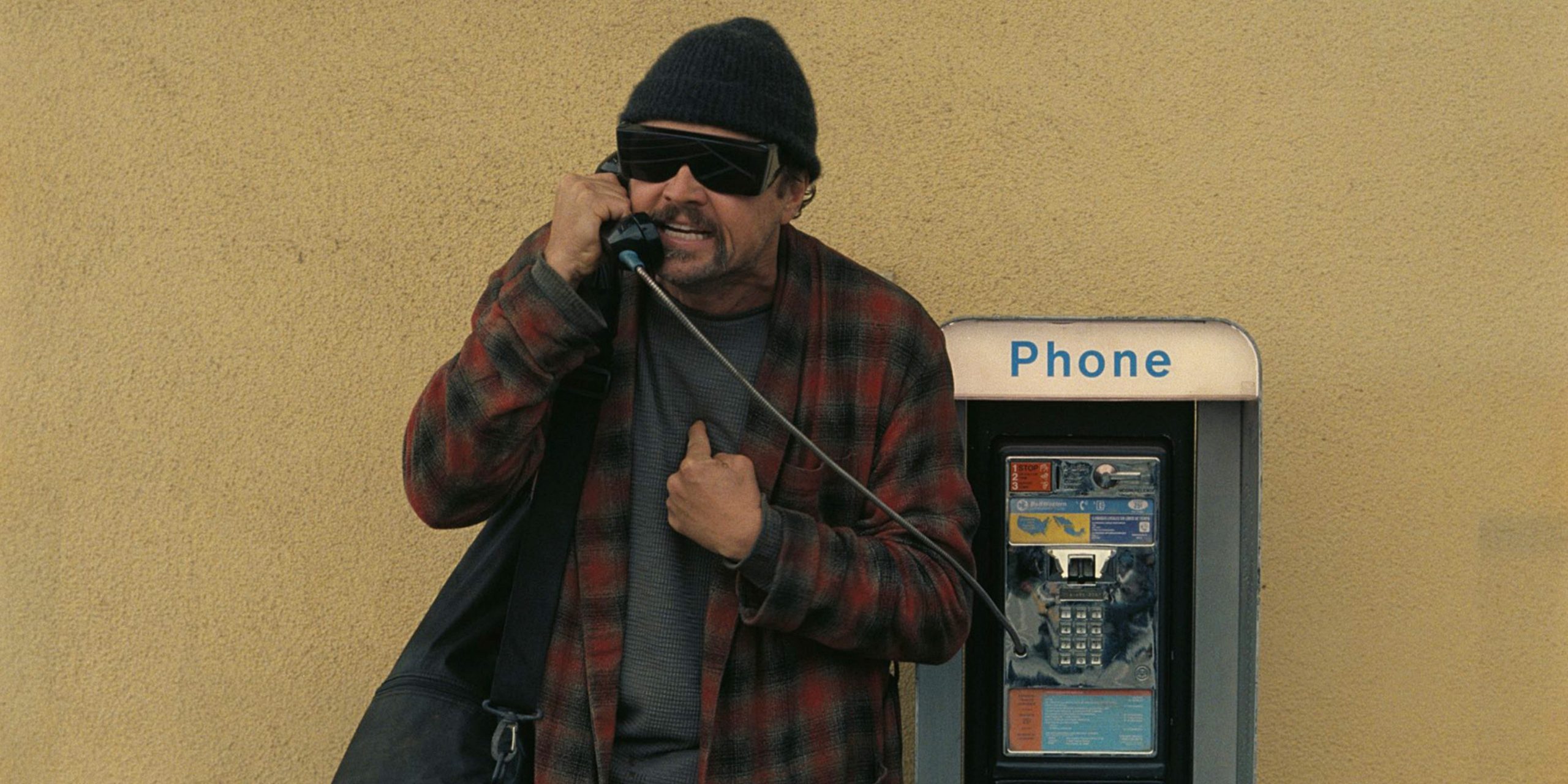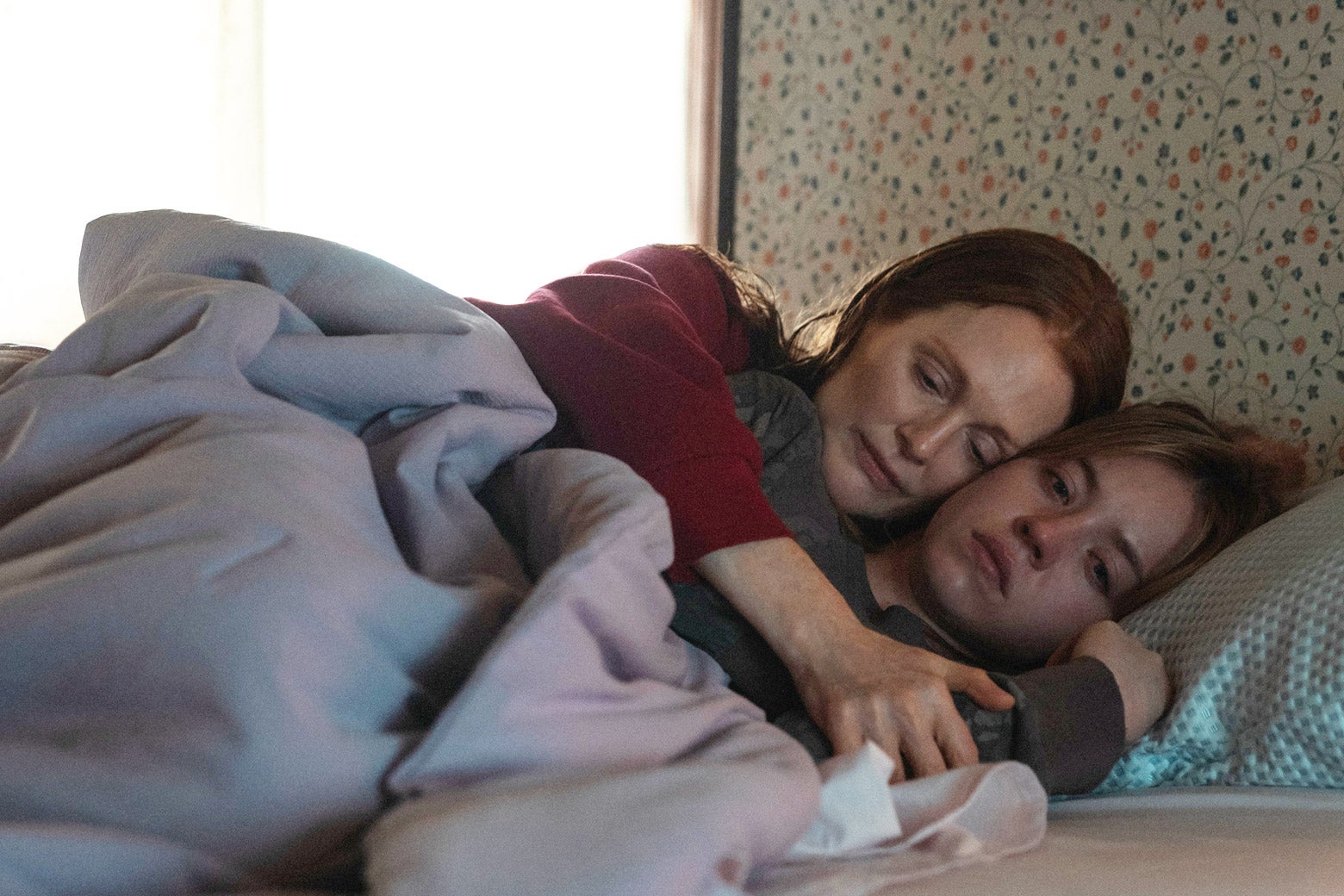#character-study
#character-study
[ follow ]
#film-review #crime-drama #kelly-reichardt #film-analysis #film #moral-ambiguity #heist-film #art-theft #horror
fromwww.theguardian.com
3 weeks agoUncomfortably relatable': writers on their favourite unlikeable movie characters
In one scene, an adoring fan asks Melvin his secret to writing women. I think of a man, and I take away reason and accountability, he says, an epic burn forever seared in my brain. Of course Melvin's anti-charm offensive only goes so far in a James L Brooks project. Before long, the rudeness erodes as Melvin is forced on to a journey of self-discovery with the nextdoor neighbor he can't abide (Greg Kinnear) and the diner waitress he can't live without (Helen Hunt).
Film
fromwww.nytimes.com
1 month agoVideo: A Singular Character | Karl Ove Knausgaard
I'm going to ask you to describe this man in as much detail as you can. What's the most distinctive feature on his face? It would be the eyes. He's called Kristian Hadeland. Twenty years old. Narrow eyes, high cheekbones. He's a photographer, wants to be a photographer. And he is ruthless, obsessive. He wants to be an artist for whatever price it takes. There's something that kind of releases all of that and he's very successful.
Books
fromRoger Ebert
2 months agoA Man on the Inside Season 2 Review: Ted Danson goes back to school
Ted Danson 's Charles Nieuwendyk, a widowed and retired professor of engineering turned private eye, is hosting a Thanksgiving gathering at his home. It's his most treasured holiday tradition: "Small group. Close friends and loved ones...We talk, we drink, we eat. We have a calm, quiet evening." Spoiler alert: that's not quite how it goes. The gathering expands to more than a dozen guests, including one complete stranger, and turns into a messy and weird and heartbreaking but also wonderful affair,
Television
fromVulture
2 months agoHow Are You Doing, Carol?
is a show that gives viewers lots to consider and contemplate, and at the center of all of it is Rhea Seehorn's deft portrayal of Carol. Celebrated for her role as Kim Wexler on Better Call Saul, Seehorn is an actress with astounding range and emotional depth - even a minute widening of her eyes or a twitch of her lip can convey volumes - and it's easy to see why Pluribus creator Vince Gilligan wrote this role specifically for her.
Television
fromVulture
3 months agoThe Chair Company Recap: Pure Hell
But "Bahdl Harmon Birthplace (Disputed)" is the strongest episode yet - arguably the first to truly prioritize the central character study of Ron Trosper - and backstory is a big part of that. Credit the script by former SNL co-head writer and The Other Two co-creator Sarah Schneider, who deploys flashbacks to perfect use and delivers an absolute wallop of an ending.
Television
fromIndieWire
3 months ago'Down Cemetery Road' Review: Emma Thompson and Ruth Wilson's Apple Mystery Tells Two Discordant Stories
In " Down Cemetery Road," Ruth Wilson looks like a frog. It's just in the first shot, when Wilson's character, Sarah Tucker, examines a priceless piece of art, as art conservationists tend to do. But director Natalie Bailey introduces her co-lead head-on: The extended magnifying glasses hang a few inches in front of her face, and the audience peers back at her baby-blue eyes as they bulge disproportionately from her studious visage.
Television
fromOregon ArtsWatch * Arts & Culture News
3 months agoLauren Modica-Soloway: Beyond 'Witch' * Oregon ArtsWatch
Saying yes to Witch (see Linda Ferguson's ArtsWatch review here) meant committing to a production calendar that would spirit cast and crew from first table read to opening night in less than a month, a process that Modica-Soloway calls "a beautiful, hard, lovely, gratitude-filled lift." With it came the opportunity for her to slip into the skin of the gruff, acerbic Elizabeth, whom she describes as "a Character, capital C."
Arts
fromThe Atlantic
3 months agoA Surprisingly Endearing True-Crime Movie
But Jeffrey Manchester, the robber known as "Roofman," made headlines for being unusually polite when he executed his misdeeds. After he surprised McDonald's employees by dropping in through the roof-hence his nickname-and holding them at gunpoint, he gently reminded one of them to breathe while they collected cash. Before he locked them in the walk-in refrigerator, he made sure that they had coats to wear so they'd be comfortable in the cold.
Film
fromVulture
3 months agoThe Chair Company Series-Premiere Recap: Not All That Serious
I think of Tim Robinson's characters as existing on a spectrum. Yes, they're all prone to loud, sudden explosions of cartoonish rage or pain, and they're almost all anxious, insecure weirdos obsessed with proving they're in on the joke. But there's a big difference between the affable "chaotic good" Tim Cramblin from Detroiters and the procession of freaks Robinson plays on his sketch show, I Think You Should Leave.
Television
fromwww.anothermag.com
4 months agoFilms to See This October
James Mooney (Josh O'Connor) is a man without a plan. With his dim-witted accomplices, he stages a heist at a Massachusetts art gallery but is soon forced on the run when the law comes to call, followed by members of a local crime cartel. Kelly Reichardt's film is a whipsmart and subversive take on the all-American crime caper, with shades of Sidney Lumet in the funny and nail-bitingly tense first half especially.
Film
fromVulture
4 months agoThe Lowdown Recap: Tales of Woe
On The Lowdown, the action picks up where it left off last week, and characters drift in and out of Lee's story, freed from the burden of an arc. The looseness (so far) works for me, because Lee Raybon's fast days don't end. His misadventures crash into one another. His problems accumulate. His arc is crescendoing chaos. The looseness also mirrors something rare and powerful about Lee himself: how he authors his own fate, sets his own hectic pace, never checks a calendar.
Television
Film
fromIndieWire
4 months agoEvery Paul Thomas Anderson Movie, Ranked from Worst to Best - Including 'One Battle After Another'
Paul Thomas Anderson's films consistently portray broken, incomplete characters and an enduring sense of inherent vice across a time-spanning, stylistically varied filmography.
fromwww.theguardian.com
4 months agoThe Lowdown review Ethan Hawke is terrific in playful neo-noir series
He sniffs around Tulsa, Oklahoma, digs through people's trash, repeatedly makes a mess of things and mostly gets hostile responses from the people who have the misfortune of crossing paths with him (pretty much the world a raccoon lives in). But, every so often, someone will find Lee adorable or sympathetic enough that they just might lend him a helping hand, or even take him to bed with them.
Television
fromThe Atlantic
4 months agoA Bleak World Without Women
In Mare of Easttown, the previous Delaware County-set series that Brad Ingelsby made for HBO, solving crimes was women's work: Kate Winslet's blowsy, grimacing turn as a detective in a Philly exurb was thrilling to watch not just for her flattened vowels and bone-deep sighs but for her character's authority. Looking more exhausted than any TV character in recent memory, Mare investigated murders, raised her grandson, and presided over her community with questionable ethics but unfailing care.
Television
fromPortland Monthly
5 months ago'Night Always Comes' Is a Netflix Caricature of Portland
It wasn't yet another national media story telling Portland about itself, but rather a book review-of a novel, no less. Portlander Willy Vlautin's The Night Always Comes rendered the city's cost-of-living crisis through one woman's torment. Somehow, the book knit a lifelike portrait of systemic injustice into a quick, violent crime drama that careens through a single, momentous night-escorts, guns, cocaine, and a stolen Mercedes-without selling out its characters or its city.
Books
Fashion & style
fromstupidDOPE | Est. 2008
8 months agoLOEWE's FW25 Pre-Collection Campaign Blurs Reality Through a Cinematic Lens | stupidDOPE | Est. 2008
LOEWE's Fall/Winter 2025 pre-collection showcases an intimate, character-driven campaign that emphasizes subtlety and innovative design in fashion.
[ Load more ]



















